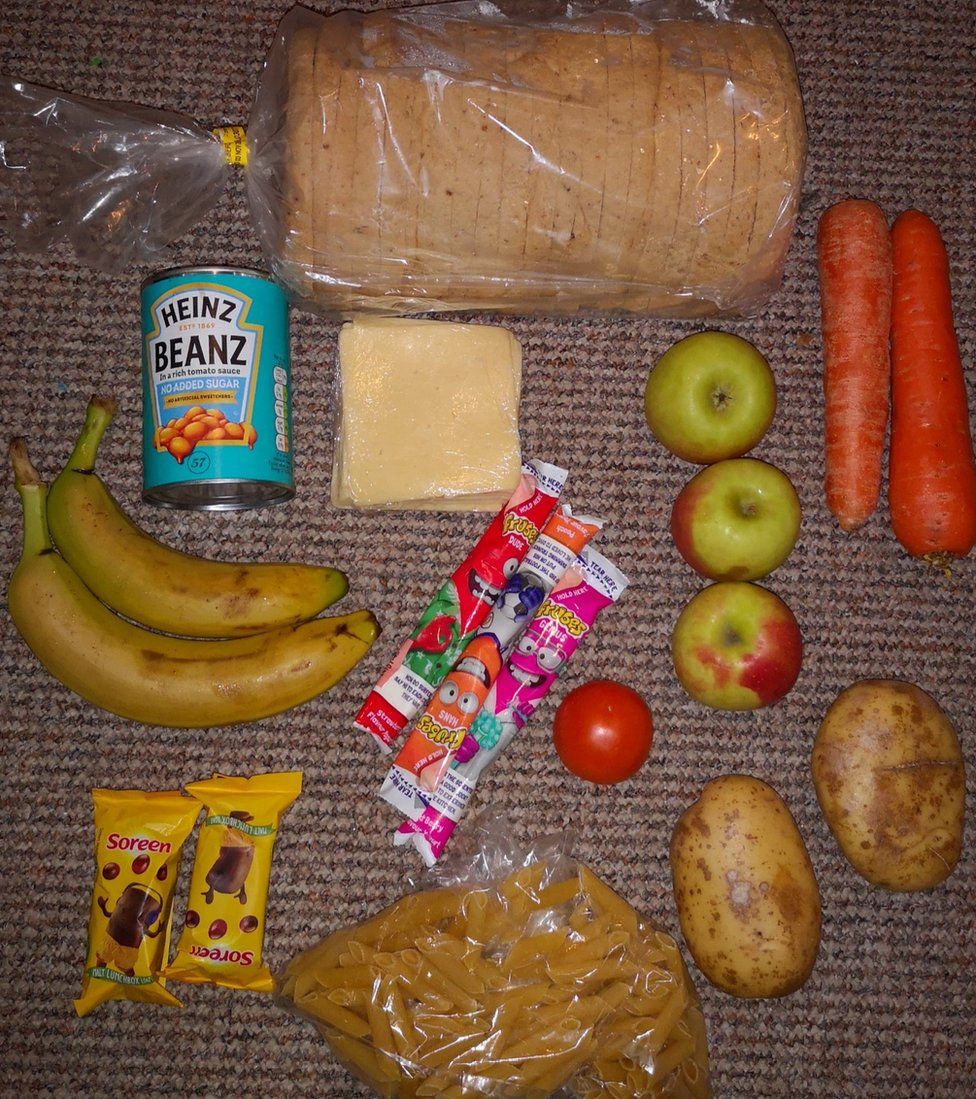When an image of some mouldy bananas, a loaf of bread, and some meagre offerings of beans and cheese began circulating on Twitter this January outcries were heard from disbelieving parents that this was the standard of lunches being provided to feed disadvantaged children during lockdown. End Child Food Poverty campaigner Marcus Rashford drew attention to the image, declaring it was “just not good enough”. Despite tireless campaigning and frequent government U-Turns, Boris Johnson’s promise that no child will go hungry this winter appears to be falling short. The fact that these sub-standard parcels were allowed to be distributed highlights innate class prejudice in this country, a prejudice felt most acutely by children in the form of an empty stomach.
The company responsible for the berated food parcel, The Compass Group subsidiary Chartwells, provides educational catering for both primary and secondary schools as well as having a separate branch responsible for independent school catering and hospitality. Blame was quick to be imposed onto the catering company. Some on Twitter drew comparisons to the lavish images of independent school catering they provide, a stark reminder of the luxury so few children have access to. In a revealing form of irony, their website claims to provide every student with the same opportunity for nutritious, fun, and tasty meals. It seems that in the case of disadvantaged students from low-income families, this statement does not ring true.
Rashford’s End Child Food Poverty campaign has since joined forces with high profile chefs as well as actor and activist Dame Emma Thompson alongside over 40 charities and educational leaders in a letter to the Prime Minister and Gavin Williams, Secretary of State for Education. They call for a comprehensive review of the Free School Meal Policy to ensure long term solutions are found to support the most disadvantaged children. This includes expanding eligibility for free school meals.
A debate has emerged over whether the best course of action is to provide food parcels directly to children or for vouchers to be made available to parents to shop for the food themselves. The Department for Education “strongly encourage” food parcels, defending the ability to maintain school food standards as well as the safeguarding benefits of regular contact with children. However, arguments that providing vouchers can be a more dignified option for parents, allowing them the luxury of choice and to cater lunches to their child’s individual tastes have emerged. Does the preference for food parcels speak to a deeply ingrained stigma over the ability of disadvantaged parents to provide for their children?
The debate is reminiscent of controversy surrounding comments made by Conservative MPs after the government’s refusal to extend free school meal provision into October half term. John Penrose received backlash after blaming “chaotic parents” while Ben Bradley compared free school meal vouchers to “direct cash to a crack den and a brothel”.
Encouragingly, action has been taken. Chartwells have apologised and stated plans to refund those who received inadequate parcels as well as providing breakfast free of charge. The government has now surrendered its “food parcel first policy”, offering schools the choice of issuing vouchers to parents. The national supermarket voucher scheme Rashford successfully campaigned for in June was also re-opened on the 18th of January.
Since free school meal campaigning encouraged a government U-Turn in June, the issue has become political. Ensuring children don’t go hungry during the extensive and ongoing impact of the pandemic is no simple task. However, it is a task made more difficult if class prejudice governs responses. Both the catering companies providing food parcels and the government must reflect on how blinkered perceptions of low-income families can impact the services they provide and the policy that is formed. Only then can one ensure children are not suffering as a result.
Isobel Broadhurst
Image source: Roadside Mum

